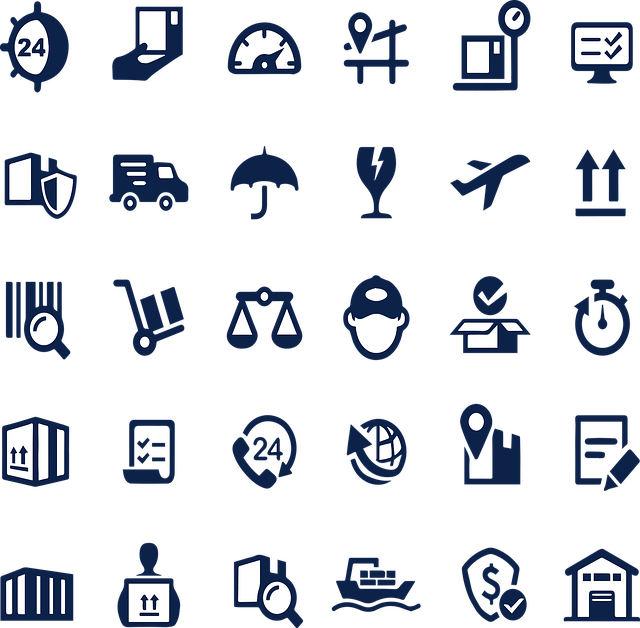AI chatbots for marketing streamline business interactions by automating tasks and providing personalized experiences via CRM integration. They leverage customer data for tailored messaging, enhancing engagement and conversion rates. These bots learn from interactions, continuously improving marketing strategies with targeted promotions and post-purchase support. By analyzing behavior and preferences, they enable hyper-personalized communications through various channels, fostering brand loyalty and unique connections with audiences. Integrating analytics with CRMs offers valuable insights to optimize the customer journey and drive sales funnel efficiency.
In today’s digital landscape, businesses are constantly seeking innovative ways to enhance marketing strategies. An AI chatbot for marketing offers a transformative solution, promising improved efficiency and personalized customer engagement. This article delves into the world of these advanced tools, exploring their role in integrating seamlessly with CRM systems. We’ll uncover strategies for automated data insights, efficient analytics, and optimization techniques, ultimately revolutionizing marketing dynamics.
- Understanding AI Chatbots for Marketing Efficiency
- Integrating Chatbots Seamlessly With CRM Systems
- Personalized Customer Engagement Strategies
- Leveraging Data Insights and Automation
- Measuring Success: Analytics and Optimization Techniques
Understanding AI Chatbots for Marketing Efficiency

AI Chatbots for marketing are transforming how businesses interact with their customers, offering unprecedented efficiency gains and personalization levels. These intelligent assistants can handle a wide range of tasks, from automating customer support and lead generation to refining email marketing campaigns and optimizing landing pages. By integrating seamlessly with CRMs (Customer Relationship Management), they gain access to valuable customer data, enabling them to deliver tailored messages at the right time.
For instance, an AI chatbot could be programmed to send a missed call text back with personalized product recommendations based on the customer’s previous interactions and purchase history. This not only enhances the customer experience but also increases conversion rates. Moreover, these chatbots can learn and adapt over time, continually improving their performance and contributing to the overall success of marketing strategies, whether it’s through targeted promotions or post-purchase support.
Integrating Chatbots Seamlessly With CRM Systems

Integrating AI chatbots seamlessly with CRM (Customer Relationship Management) systems is a game-changer for modern marketing strategies. These intelligent bots can be designed to interact with customers, providing personalized support and enhancing user experiences. When integrated with CRMs, they gain access to valuable customer data stored within the platform, enabling them to offer tailored recommendations and targeted campaigns. For instance, an AI chatbot could use CRM insights to initiate a WhatsApp marketing campaign, sending personalized messages based on individual customer preferences.
This integration facilitates marketing automation by streamlining processes such as lead generation, qualification, and nurturing. Chatbots can automatically capture user information, qualify leads, and route them to the appropriate sales teams within the CRM. Moreover, they can be programmed to engage prospects across various channels, including social media platforms, creating a unified marketing experience. By leveraging AI chatbot technology alongside marketing automation tools, businesses can optimize their strategies, improve customer engagement, and ultimately drive higher conversion rates.
Personalized Customer Engagement Strategies

Personalized Customer Engagement Strategies have become a cornerstone of modern marketing, and AI Chatbots are at the forefront of this revolution. By integrating with CRMs (Customer Relationship Management), these intelligent assistants can analyze vast amounts of customer data to deliver hyper-personalized interactions. This level of customization allows businesses to provide tailored recommendations, targeted offers, and instant support, significantly enhancing customer satisfaction and loyalty.
For instance, an AI chatbot could leverage customer purchase history and preferences in an ecommerce solution like WhatsApp Marketing or Text Message Marketing, crafting individual messages that resonate with each user. This not only increases the chances of conversion but also fosters a deeper connection between the brand and its audience, making every interaction feel uniquely theirs.
Leveraging Data Insights and Automation

AI chatbots for marketing offer a game-changing opportunity to leverage data insights and streamline automation within marketing strategies. By integrating with Customer Relationship Management (CRM) systems, these intelligent assistants can access and analyze vast customer data repositories. This enables them to provide valuable marketing analytics, such as identifying trends in customer behavior, preferences, and interactions across various touchpoints.
One of the key benefits is the ability to automate routine tasks like personalized email marketing campaigns or missed call text back services. Chatbots can automatically segment customers based on their interactions, tailoring communications to specific segments. This level of automation not only saves time but also ensures that each customer receives relevant, timely messaging, enhancing engagement and conversion rates.
Measuring Success: Analytics and Optimization Techniques

Measuring success is a critical aspect of any marketing strategy, and AI chatbots are no exception. By integrating analytics tools with CRM systems, marketers can gain deep insights into user interactions with the chatbot. This data reveals which aspects of the customer journey are most effective, allowing for precise optimizations. For example, tracking conversation rates and average session lengths helps in refining message content and delivery timing. Moreover, analyzing user behavior within the sales funnel can identify bottlenecks where potential customers abandon their paths to purchase, prompting adjustments to chatbot responses or lead qualification criteria.
The power of AI chatbots lies not only in their conversational abilities but also in the data they collect and process. Marketers can leverage these insights for personalized social media marketing automation, ensuring that each customer interaction is tailored to individual preferences and behaviors. Additionally, analyzing call-to-action responses, such as missed call text backs, enables businesses to refine their strategies, improving engagement and conversion rates. These optimization techniques not only enhance the overall customer experience but also drive sales funnel efficiency, ultimately contributing to a successful AI chatbot for marketing implementation.
An AI chatbot for marketing that integrates seamlessly with CRM systems offers significant efficiency gains, personalized customer engagement, and powerful data insights. By automating repetitive tasks and providing intelligent support, these chatbots enhance overall marketing performance. Leveraging advanced analytics allows marketers to optimize strategies, improve customer satisfaction, and drive business growth in today’s competitive landscape.
